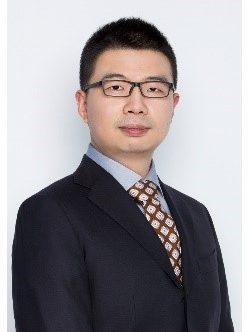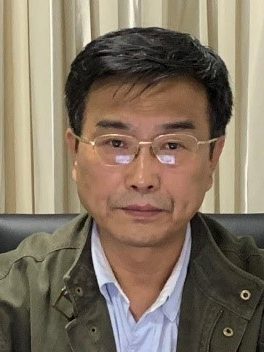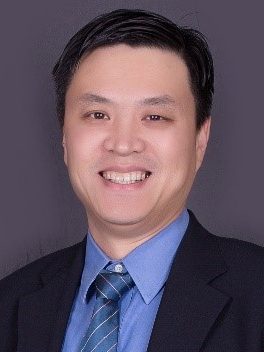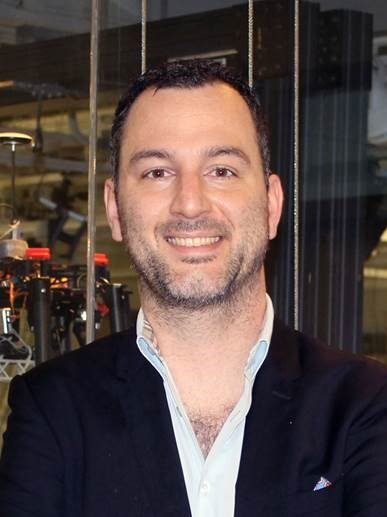W2: Data-Driven and Machine Learning Enabled Control
(Sunday 18 August, 09:00-17:00, Room:LT-16, Yeung Building)
Organizer: Ye Yuan, Huazhong University of Science and Technology
Organizer: Zhongsheng Hou, Qingdao University
Organizer: Fumin Zhang, Georgia Institute of Technology
Abstract: The goal for this workshop is to present recent advancement of control approaches in the context of Data-Driven and Machine Learning enabled Control. This invited session is motivated by the rapidly growing number of research and applications of machine learning and data driven control methods. These approaches have proven to be effective in controlling highly complex and nonlinear systems in various applications. Considering the development of this field, we aim to report recent research achievements, and identify relevant challenges at the same time.
This workshop will target a group of audience consisting of control theorists, machine learning researchers, and computer scientists alike. Through these sessions, we have invited researchers from different backgrounds to discuss recent advancements in addressing related problems. Considering the cross participation of researchers with different expertise, we hope this workshop can be helpful for the audience to gain inspirations from colleagues, hence further their own quests and form new ideas.
Organizers:
 Ye Yuan, Huazhong University of Science and Technology
Ye Yuan, Huazhong University of Science and Technology
Email: yye@hust.edu.cn
Biography: Dr. Ye Yuan received the B.Eng. degree from the Department of Automation, Shanghai Jiao Tong University, Shanghai, China, in 2008, and the M.Phil. and Ph.D. degrees from the Department of Engineering, University of Cambridge, Cambridge, U.K., in 2009 and 2012, respectively. He has been a Full Professor at the Huazhong University of Science and Technology, Wuhan, China since 2016. Prior to this, he was a Postdoctoral Researcher at UC Berkeley, a Junior Research Fellow at Darwin College, University of Cambridge. His research interests include system identification and control with applications to cyber-physical systems. Dr. Yuan has received the China National Recruitment Program of 1000 Talented Young Scholars, the Dorothy Hodgkin Postgraduate Awards, Microsoft Research Ph.D. Scholarship and a number of Best Paper Awards in IEEE conferences
 Zhongsheng Hou, Qingdao University
Zhongsheng Hou, Qingdao University
Email: zhshhou@bjtu.edu.cn
Biography: Dr. Zhongsheng Hou received Bachelor’s and Master’s degrees from Jilin University of Technology, China, in 1983 and 1988, respectively, and Ph.D. degree from Northeastern University, China, in 1994. He was a Postdoctoral Fellow with Harbin Institute of Technology, China, from 1995 to 1997 and a Visiting Scholar with Yale University, CT, from 2002 to 2003. In 1997, he joined the Beijing Jiaotong University, China, where he is a distinguished professor and founding director of advanced Control Systems Lab, and Head of Department of Automatic Control. He is also the founding director of the Technical Committee on Data Driven Control, Learning and Optimization (DDCLO), Chinese Association of Automation. He is an IFAC Technical Committee Member on both “Adaptive and Learning Systems” and “Transportation Systems.” His research interests include the fields of data-driven control, model-free adaptive control, learning control, and intelligent transportation systems. Prof. Hou’s original work on Model Free Adaptive Control has been recognized by over 150 different field applications including wide-area power system, lateral control of autonomous vehicle, temperature control of silicon rod, etc., and his pioneering contributions in Data Driven Control & Learning Control have been recognized by multiple projects supported by the National Natural Science Foundation of China (NSFC), including two key projects of NSFC, 2009 and 2015 respectively, and a major international cooperation project of NSFC, 2012, and by his leading role as a Guest Editor in two Special Sections on the topic of data driven control in the IEEE TRANSACTIONS ON NEURAL NETWORKS, 2011, and the IEEE TRANSACTIONS ON INDUSTRIAL ELECTRONICS, 2017. Up to now, he has over 160 peer-reviewed journal papers published and over 140 papers in prestigious conference proceedings. He is the author of two monographs Nonparametric Model and its Adaptive Control Theory, Science Press, 1999, (in Chinese) and Model Free Adaptive Control: Theory and Applications, CRC Press, 2013.
 Fuming Zhang, Georgia Institute of Technology
Fuming Zhang, Georgia Institute of Technology
Email: fumin@gatech.edu
Biography: Dr. Fumin Zhang is Professor in the School of Electrical and Computer Engineering at the Georgia Institute of Technology. He received a PhD degree in 2004 from the University of Maryland (College Park) in Electrical Engineering, and held a postdoctoral position in Princeton University from 2004 to 2007. His research interests include mobile sensor networks, maritime robotics, control systems, and theoretical foundations for cyber-physical systems. He received the NSF CAREER Award in September 2009 and the ONR Young Investigator Program Award in April 2010. He is currently serving as the co-chair for the IEEE RAS Technical Committee on Marine Robotics, associate editors for IEEE Journal of Oceanic Engineering, Robotics and Automation Letters, IEEE Transactions on Automatic Control, and IEEE Transactions on Control of Networked Systems, and the deputy editor-in-chief for the Cyber-Physical Systems Journal.
Speakers:
Data-driven Discovery of Cyber Physical Systems (09:05 – 09:50)
Ye Yuan, Huazhong University of Science and Technology
 Abstract: A major cross-disciplinary challenge concerns the need to adequately model cyber-physical systems (CPSs). CPSs, which embed software into the physical world (for example, in smart grids, robotics, intelligent manufacture and medical monitoring), have proved resistant to modeling due to the intrinsic complexity arising from (a) the combination of physical and cyber components and (b) the interaction between systems. This study proposes a solution in the form of a general framework for reverse engineering CPSs from data without prior knowledge. The method, which draws from artificial intelligence, involves the identification of physical systems as well as the inference of computer logics using sparse identification. The novel framework, which has been applied successfully to a number of real-world examples, seeks to enable researchers to make predictions concerning the trajectory of CPSs based on the discovered model. Such information may prove essential for the assessment of the performance of CPS and the design of failure-proof CPS. We can also use the proposed framework for the creation of design guidelines for new CPSs.
Abstract: A major cross-disciplinary challenge concerns the need to adequately model cyber-physical systems (CPSs). CPSs, which embed software into the physical world (for example, in smart grids, robotics, intelligent manufacture and medical monitoring), have proved resistant to modeling due to the intrinsic complexity arising from (a) the combination of physical and cyber components and (b) the interaction between systems. This study proposes a solution in the form of a general framework for reverse engineering CPSs from data without prior knowledge. The method, which draws from artificial intelligence, involves the identification of physical systems as well as the inference of computer logics using sparse identification. The novel framework, which has been applied successfully to a number of real-world examples, seeks to enable researchers to make predictions concerning the trajectory of CPSs based on the discovered model. Such information may prove essential for the assessment of the performance of CPS and the design of failure-proof CPS. We can also use the proposed framework for the creation of design guidelines for new CPSs.
Biography: Dr. Ye Yuan received the B.Eng. degree from the Department of Automation, Shanghai Jiao Tong University, Shanghai, China, in 2008, and the M.Phil. and Ph.D. degrees from the Department of Engineering, University of Cambridge, Cambridge, U.K., in 2009 and 2012, respectively. He has been a Full Professor at the Huazhong University of Science and Technology, Wuhan, China since 2016. Prior to this, he was a Postdoctoral Researcher at UC Berkeley, a Junior Research Fellow at Darwin College, University of Cambridge. His research interests include system identification and control with applications to cyber-physical systems. Dr. Yuan has received the China National Recruitment Program of 1000 Talented Young Scholars, the Dorothy Hodgkin Postgraduate Awards, Microsoft Research Ph.D. Scholarship and a number of Best Paper Awards in IEEE conferences
Learning and Predicting Human Intentions Through Interactions (09:50 – 10:35)
Fuming Zhang, Georgia Institute of Technology
 Abstract: One of the most challenging problems for robot to effectively interact with human is the lack of predictive models for human Intentions. The research community is making tremendous effort in developing learning algorithms and feedback control methods that are able to adapt to individual differences and, at the same time, to tolerate temporary abnormalities. This talk will focus on how to recognize and predict human intentions when a robot may have an opportunity to trigger reactions from a human subject repeatedly. We will discuss models for human pointing motion, human feature detection, and a class of expert based learning algorithms that have been applied to human robot interaction in experiments. We develop the Georgia Tech Miniature Autonomous Blimp (GT-MAB) as flying vehicles for indoor experiments that supports safe interaction between human and flying robots. The GT-MAB has relatively long flight duration up to two hours per battery charge. Furthermore, the blimps are naturally cushioned and do not cause any pain when collide with human. It offers a fun experience that often encourage physical contacts with humans.
Abstract: One of the most challenging problems for robot to effectively interact with human is the lack of predictive models for human Intentions. The research community is making tremendous effort in developing learning algorithms and feedback control methods that are able to adapt to individual differences and, at the same time, to tolerate temporary abnormalities. This talk will focus on how to recognize and predict human intentions when a robot may have an opportunity to trigger reactions from a human subject repeatedly. We will discuss models for human pointing motion, human feature detection, and a class of expert based learning algorithms that have been applied to human robot interaction in experiments. We develop the Georgia Tech Miniature Autonomous Blimp (GT-MAB) as flying vehicles for indoor experiments that supports safe interaction between human and flying robots. The GT-MAB has relatively long flight duration up to two hours per battery charge. Furthermore, the blimps are naturally cushioned and do not cause any pain when collide with human. It offers a fun experience that often encourage physical contacts with humans.
Biography: Dr. Fumin Zhang is Professor in the School of Electrical and Computer Engineering at the Georgia Institute of Technology. He received a PhD degree in 2004 from the University of Maryland (College Park) in Electrical Engineering, and held a postdoctoral position in Princeton University from 2004 to 2007. His research interests include mobile sensor networks, maritime robotics, control systems, and theoretical foundations for cyber-physical systems. He received the NSF CAREER Award in September 2009 and the ONR Young Investigator Program Award in April 2010. He is currently serving as the co-chair for the IEEE RAS Technical Committee on Marine Robotics, associate editors for IEEE Journal of Oceanic Engineering, Robotics and Automation Letters, IEEE Transactions on Automatic Control, and IEEE Transactions on Control of Networked Systems, and the deputy editor-in-chief for the Cyber-Physical Systems Journal.
Control of Signalized Traffic Intersections using Low-rank Structure in Data (11:05 – 11:50)
Sam Coogan, Georgia Institute of Technology
 Abstract: The operation of most signalized traffic intersections is governed by predefined timing plans that are applied during specified times of the day. These plans are designed to accommodate average conditions and are unable to respond to large deviations in traffic flow. In this talk, we present a control approach that adjusts time-of-day signaling plans based on a prediction of future traffic flow. The prediction algorithm identifies correlated, low rank structure in historical measurement data and predicts future traffic flow from real-time measurements by determining which structural trends are prominent in the measurements. From this prediction, the controller then determines the optimal time of day to apply new timing plans and adjusts the timing plans to accommodate the anticipated traffic.
Abstract: The operation of most signalized traffic intersections is governed by predefined timing plans that are applied during specified times of the day. These plans are designed to accommodate average conditions and are unable to respond to large deviations in traffic flow. In this talk, we present a control approach that adjusts time-of-day signaling plans based on a prediction of future traffic flow. The prediction algorithm identifies correlated, low rank structure in historical measurement data and predicts future traffic flow from real-time measurements by determining which structural trends are prominent in the measurements. From this prediction, the controller then determines the optimal time of day to apply new timing plans and adjusts the timing plans to accommodate the anticipated traffic.
Biography: Dr. Sam Coogan is an assistant professor at Georgia Tech with a joint appointment in the School of Electrical and Computer Engineering and the School of Civil and Environmental Engineering. He currently holds the Demetrius T. Paris Junior Professorship in the School of ECE. Prior to joining Georgia Tech in July 2017, he was an assistant professor at UCLA from 2015-2017. He received the B.S. degree in Electrical Engineering from Georgia Tech and the M.S. and Ph.D. degrees in Electrical Engineering from the University of California, Berkeley. In 2015, he was a postdoctoral research engineer at Sensys Networks, Inc., and in 2012 he was a research intern at NASA’s Jet Propulsion Lab.
His research is in the area of dynamical systems and autonomy and focuses on developing scalable tools for verification and control of networked, cyber-physical systems with an emphasis on autonomous transportation systems. His research contributes to and draws from domains including control theory, nonlinear and hybrid systems theory, formal methods, learning in probabilistic systems, and optimization. Dr. Coogan received a Young Investigator Award from the Air Force Office of Scientific Research in 2018, a CAREER Award from the National Science Foundation in 2018, the IEEE Transactions on Control of Network Systems Outstanding Paper Award in 2017, and the best student paper award at the 2015 Hybrid Systems: Computation and Control conference.
Learning-based Predictive Dynamic Controller for Tracking Applications (13:30 – 14:15)
Yorai Wardi, Georgia Institute of Technology & Kyriakos Vamvoudakis, Georgia Institute of Technology
Abstract: In this talk, target tracking will be presented through a variable gain integrator for a system whose dynamics are unknown or uncertain. Towards that, a predictor-based dynamic controller is utilized which, in the case of dynamical systems, is implemented via a simulation subsystem which operates alongside the plant. To relax the need for complete knowledge of the system model by the simulator, we augment the model-based variable gain integrator with a learning approximator. The lookahead simulation defines the control input based on the current approximation of the system, which is improved as the approximator learns. Finally, in order to decrease the usage of the controller’s resources, we will extend the framework to event-triggered strategies.
 Biography: Dr. Kyriakos G. Vamvoudakis was born in Athens, Greece. He received the Diploma (a 5 year degree, equivalent to a Master of Science) in Electronic and Computer Engineering from Technical University of Crete, Greece in 2006 with highest honors. After moving to the United States of America, he studied at The University of Texas with Frank L. Lewis as his adviser and he received his M.S. and Ph.D. in Electrical Engineering in 2008 and 2011 respectively. From May 2011 to January 2012, he was working as an Adjunct Professor and Faculty Research Associate at the University of Texas at Arlington and at the Automation and Robotics Research Institute. During the period from 2012 to 2016 he was a project research scientist at the Center for Control, Dynamical Systems and Computation at the University of California, Santa Barbara. He was an assistant professor at the Kevin T. Crofton Department of Aerospace and Ocean Engineering at Virginia Tech until 2018. He currently serves as an Assistant Professor at The Daniel Guggenheim School of Aerospace Engineering at Georgia Tech. His research interests include approximate dynamic programming, game theory, and optimal control. Recently, his research has focused on cyber-physical security, networked control, smart grid and multi-agent optimization. Dr. Vamvoudakis is the recipient of a 2018 NSF CAREER award, and of several international awards including the 2016 International Neural Network Society Young Investigator (INNS) Award, the Best Paper Award for Autonomous/Unmanned Vehicles at the 27th Army Science Conference in 2010, the Best Presentation Award at the World Congress of Computational Intelligence in 2010, and the Best Researcher Award from the Automation and Robotics Research Institute in 2011. He is a member of Tau Beta Pi, Eta Kappa Nu and Golden Key honor societies and is listed in Who’s Who in the World, Who’s Who in Science and Engineering, and Who’s Who in America. He has also served on various international program committees and has organized special sessions for several international conferences. He currently is a member of the Technical Committee on Intelligent Control of the IEEE Control Systems Society (TCIC), a member of the Technical Committee on Adaptive Dynamic Programming and Reinforcement Learning of the IEEE Computational Intelligence Society (ADPRLTC), an Associate Editor of Automatica, an Associate Editor of the IEEE Computational Intelligence Magazine, an Associate Editor of the IEEE Control Systems Letters, an Associate Editor of the Journal of Optimization Theory and Applications, an Editor in Chief of the Communications in Control Science and Engineering, a registered Electrical/Computer engineer (PE) and a member of the Technical Chamber of Greece. He is a Senior Member of IEEE.
Biography: Dr. Kyriakos G. Vamvoudakis was born in Athens, Greece. He received the Diploma (a 5 year degree, equivalent to a Master of Science) in Electronic and Computer Engineering from Technical University of Crete, Greece in 2006 with highest honors. After moving to the United States of America, he studied at The University of Texas with Frank L. Lewis as his adviser and he received his M.S. and Ph.D. in Electrical Engineering in 2008 and 2011 respectively. From May 2011 to January 2012, he was working as an Adjunct Professor and Faculty Research Associate at the University of Texas at Arlington and at the Automation and Robotics Research Institute. During the period from 2012 to 2016 he was a project research scientist at the Center for Control, Dynamical Systems and Computation at the University of California, Santa Barbara. He was an assistant professor at the Kevin T. Crofton Department of Aerospace and Ocean Engineering at Virginia Tech until 2018. He currently serves as an Assistant Professor at The Daniel Guggenheim School of Aerospace Engineering at Georgia Tech. His research interests include approximate dynamic programming, game theory, and optimal control. Recently, his research has focused on cyber-physical security, networked control, smart grid and multi-agent optimization. Dr. Vamvoudakis is the recipient of a 2018 NSF CAREER award, and of several international awards including the 2016 International Neural Network Society Young Investigator (INNS) Award, the Best Paper Award for Autonomous/Unmanned Vehicles at the 27th Army Science Conference in 2010, the Best Presentation Award at the World Congress of Computational Intelligence in 2010, and the Best Researcher Award from the Automation and Robotics Research Institute in 2011. He is a member of Tau Beta Pi, Eta Kappa Nu and Golden Key honor societies and is listed in Who’s Who in the World, Who’s Who in Science and Engineering, and Who’s Who in America. He has also served on various international program committees and has organized special sessions for several international conferences. He currently is a member of the Technical Committee on Intelligent Control of the IEEE Control Systems Society (TCIC), a member of the Technical Committee on Adaptive Dynamic Programming and Reinforcement Learning of the IEEE Computational Intelligence Society (ADPRLTC), an Associate Editor of Automatica, an Associate Editor of the IEEE Computational Intelligence Magazine, an Associate Editor of the IEEE Control Systems Letters, an Associate Editor of the Journal of Optimization Theory and Applications, an Editor in Chief of the Communications in Control Science and Engineering, a registered Electrical/Computer engineer (PE) and a member of the Technical Chamber of Greece. He is a Senior Member of IEEE.
 Biography: Dr. Yorai Wardi received his Ph.D. in Electrical Engineering and Computer Sciences from the University of California at Berkeley in 1982. In 1982-1984 he was a Member of Technical Staff at Bell Telephone Laboratories and Bell Telecommunications Research. Since 1984 he has been on the faculty of the School of Electrical and Computer Engineering at Georgia Tech, where he currently is a professor. He spent the 1987-1988 academic year at the Department of Industrial Engineering and Management, Ben Gurion University of the Negev. Dr. Wardi’s research interests are in control and optimization of hybrid systems, and computational techniques for optimal control. Application areas of interest to him include power-aware mobile robotics, performance regulation in computer processors, and motion control of autonomous vehicles. He was an associate editor of the IEEE Transactions on Automatic Control in 2001-2003, an associate editor of Nonlinear Analysis: Hybrid Systems in 2013- 2015, and an associate editor of Discrete Event Dynamic Systems: Theory and Applications in 2006-2015. He has served as a department editor of Discrete Event Dynamic Systems: Theory and Applications since 2015. He was the chair of the IFAC Technical Committee on Discrete Event and Hybrid Systems in 2014-2017.
Biography: Dr. Yorai Wardi received his Ph.D. in Electrical Engineering and Computer Sciences from the University of California at Berkeley in 1982. In 1982-1984 he was a Member of Technical Staff at Bell Telephone Laboratories and Bell Telecommunications Research. Since 1984 he has been on the faculty of the School of Electrical and Computer Engineering at Georgia Tech, where he currently is a professor. He spent the 1987-1988 academic year at the Department of Industrial Engineering and Management, Ben Gurion University of the Negev. Dr. Wardi’s research interests are in control and optimization of hybrid systems, and computational techniques for optimal control. Application areas of interest to him include power-aware mobile robotics, performance regulation in computer processors, and motion control of autonomous vehicles. He was an associate editor of the IEEE Transactions on Automatic Control in 2001-2003, an associate editor of Nonlinear Analysis: Hybrid Systems in 2013- 2015, and an associate editor of Discrete Event Dynamic Systems: Theory and Applications in 2006-2015. He has served as a department editor of Discrete Event Dynamic Systems: Theory and Applications since 2015. He was the chair of the IFAC Technical Committee on Discrete Event and Hybrid Systems in 2014-2017.
PID and Its Puzzles – MFAC and Progress (14:15 – 15:00)
Zhongsheng Hou, Qingdao University
 Abstract: Modern control theory has been fully grown with its main branches under the model-based framework. However, for the industry plants, 1) whose first principle models or identified models are available but with indescribable large unmodeled dynamics and uncertainties, 2) whose models are too complicated with high order and/or high nonlinearity, 3) whose models are unavailable, there are still no efficient control methods even theoretically, which challenges our control theory community. Fortunately, the process data of industrial processes can be obtained, and it contains all the valuable information on the process operations. Therefore, the data driven control methods, which directly uses such process data to determine the controller structure and tune the controller parameter, would have great significance for the control theory development. This talk takes the typical data driven control method PID and MFAC as examples to illustrate the significance of data driven control. The talk includes following four parts. First, some foundational questions on PID controller are proposed. Then a novel math tool called dynamic linearization data modelling for the controller structure determination is introduced. Thirdly, illustrating by the Model Free Adaptive Control (MFAC), the questions, how the PID controller structure comes from, how to make PID grow vigorously etc., are answered. The final part of this talk is the result of MFAC application in the Benchmark Problem of IFAC Conference PID 2018.
Abstract: Modern control theory has been fully grown with its main branches under the model-based framework. However, for the industry plants, 1) whose first principle models or identified models are available but with indescribable large unmodeled dynamics and uncertainties, 2) whose models are too complicated with high order and/or high nonlinearity, 3) whose models are unavailable, there are still no efficient control methods even theoretically, which challenges our control theory community. Fortunately, the process data of industrial processes can be obtained, and it contains all the valuable information on the process operations. Therefore, the data driven control methods, which directly uses such process data to determine the controller structure and tune the controller parameter, would have great significance for the control theory development. This talk takes the typical data driven control method PID and MFAC as examples to illustrate the significance of data driven control. The talk includes following four parts. First, some foundational questions on PID controller are proposed. Then a novel math tool called dynamic linearization data modelling for the controller structure determination is introduced. Thirdly, illustrating by the Model Free Adaptive Control (MFAC), the questions, how the PID controller structure comes from, how to make PID grow vigorously etc., are answered. The final part of this talk is the result of MFAC application in the Benchmark Problem of IFAC Conference PID 2018.
Biography: Dr. Zhongsheng Hou received Bachelor’s and Master’s degrees from Jilin University of Technology, China, in 1983 and 1988, respectively, and Ph.D. degree from Northeastern University, China, in 1994. He was a Postdoctoral Fellow with Harbin Institute of Technology, China, from 1995 to 1997 and a Visiting Scholar with Yale University, CT, from 2002 to 2003. In 1997, he joined the Beijing Jiaotong University, China, where he is a distinguished professor and founding director of advanced Control Systems Lab, and Head of Department of Automatic Control. He is also the founding director of the Technical Committee on Data Driven Control, Learning and Optimization (DDCLO), Chinese Association of Automation. He is an IFAC Technical Committee Member on both “Adaptive and Learning Systems” and “Transportation Systems.” His research interests include the fields of data-driven control, model-free adaptive control, learning control, and intelligent transportation systems. Prof. Hou’s original work on Model Free Adaptive Control has been recognized by over 150 different field applications including wide-area power system, lateral control of autonomous vehicle, temperature control of silicon rod, etc., and his pioneering contributions in Data Driven Control & Learning Control have been recognized by multiple projects supported by the National Natural Science Foundation of China (NSFC), including two key projects of NSFC, 2009 and 2015 respectively, and a major international cooperation project of NSFC, 2012, and by his leading role as a Guest Editor in two Special Sections on the topic of data-driven control in the IEEE TRANSACTIONS ON NEURAL NETWORKS, 2011, and the IEEE TRANSACTIONS ON INDUSTRIAL ELECTRONICS, 2017. Up to now, he has over 160 peer-reviewed journal papers published and over 140 papers in prestigious conference proceedings. He is the author of two monographs Nonparametric Model and its Adaptive Control Theory, Science Press, 1999, (in Chinese) and Model Free Adaptive Control: Theory and Applications, CRC Press, 2013.
Schedule:
| Time | Speaker | Title |
| 09:00 – 09:05 | Greetings and Introduction | |
| 09:05 – 09:50 | Dr. Ye Yuan | Data-driven Discovery of Cyber Physical Systems |
| 09:50 – 10:35 | Dr. Fumin Zhang | Learning and Predicting Human Intentions Through Interactions |
| 10:35 – 11:05 | Morning Coffee Break | |
| 11:05 – 11:50 | Dr. Sam Coogan | Control of Signalized Traffic Intersections using Low-rank Structure in Data |
| 11:50 – 12:15 | Discussion 1 | |
| 12:15 – 13:30 | Lunch & Social Time | |
| 13:30 – 14:15 | Dr. Kyriakos Vamvoudakis and Dr. Yorai Wardi | Learning-based Predictive Dynamic Controller for Tracking Applications |
| 14:15 – 15:00 | Dr. Zhongsheng Hou | PID and Its Puzzles — MFAC and Progress |
| 15:00 – 15:30 | Afternoon Coffee Break | |
| 15:30 – 15:55 | Discussion 2 | |
| 15:55 – 16:00 | Warp up | |
The registration page is https://css.paperplaza.net/registration/index.php. We look forward to seeing you in Hong Kong!